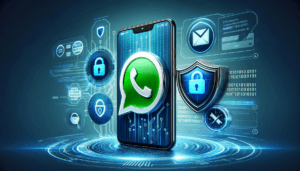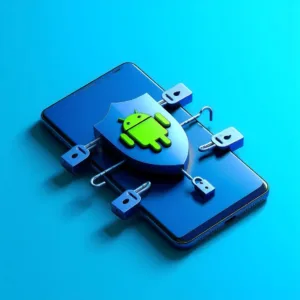Welcome to our comprehensive guide on “iPhone Security,” where we delve into various aspects of securing your iPhone. This guide covers everything from the basics of iOS security to advanced measures for protecting your digital world. Let’s explore the articles that make up this complete guide.
iPhone Security
Do iPhones Have Built-In Security?
Yes, iPhones have built-in security features designed to protect users’ privacy and data. These features include strong encryption to protect data, Face ID and Touch ID for secure authentication, and the Secure Enclave, which provides advanced security. Apple’s iOS operating system also includes regular security updates to address vulnerabilities and enhance overall device security.
How Do I Check My iPhone Security?
To check your iPhone’s security settings, go to the “Settings” app and navigate to the “Face ID & Passcode” or “Touch ID & Passcode” section. Here, you can review and configure lock screen security settings. Additionally, visit “Settings” > “Privacy” to check app permissions and other privacy-related settings. Regularly updating your iOS to the latest version also ensures enhanced security.
How Do I Turn On Security on My iPhone?
To turn on security on your iPhone, start by setting up Face ID or Touch ID along with a passcode. This can be done in the “Settings” app under “Face ID & Passcode” or “Touch ID & Passcode.” Ensure that ‘Find My iPhone’ is enabled in your iCloud settings for location tracking and remote actions in case your iPhone is lost or stolen. Also, activate two-factor authentication for your Apple ID for an additional layer of security.
Is iPhone 100% Secure?
No electronic device, including the iPhone, can be 100% secure. iPhones are designed with multiple layers of security to protect against various threats, but like any technology, they can be vulnerable to sophisticated cyber attacks and security breaches. Users can enhance security by following best practices, keeping their iOS updated, and being cautious about app downloads and website visits.
1. Introduction to iPhone Security
Understand the fundamental importance of iPhone security within the broader context of mobile device security. This introductory article sets the stage for why safeguarding your iPhone is crucial in the digital era.
2. Built-in Security Features of iPhones
Apple’s iPhones are equipped with several inherent security features. This piece provides a detailed walkthrough of these native security aspects, helping you utilize them to their fullest potential.
3. Managing App Permissions and Privacy Settings
This article guides you through the complex world of app permissions and privacy settings, showing how proper management can enhance the security of your iPhone.
4. Securing iCloud on Your iPhone
iCloud security is pivotal in protecting your digital assets. Explore effective strategies to secure your data on iCloud and safeguard your information.
5. Safe Browsing Practices for iPhone Users
Learn essential tips for maintaining secure online practices while using your iPhone. This guide is key to navigating the internet safely.
6. Protecting Against Malware and Phishing on Your iPhone
Discover strategies to recognize and defend against malware and phishing, crucial for protecting your iPhone against digital threats.
7. What To Do If Your iPhone Is Lost or Stolen
A comprehensive plan detailing the steps to take for securing your data and responding effectively if your iPhone is lost or stolen.
8. Using VPNs for Added Security on Your iPhone
Unlock the potential of Virtual Private Networks to secure your internet connection on your iPhone, a crucial step for enhanced online security.
For detailed instructions on various security features and settings, visit Apple Support. Additionally, explore our security section for more insights and tips on digital safety and security.
Conclusion
Each article in this guide provides in-depth information and practical tips to ensure your iPhone remains secure in various scenarios. From basic settings to advanced security measures, this guide aims to equip you with the knowledge and tools needed to protect your digital life effectively.


